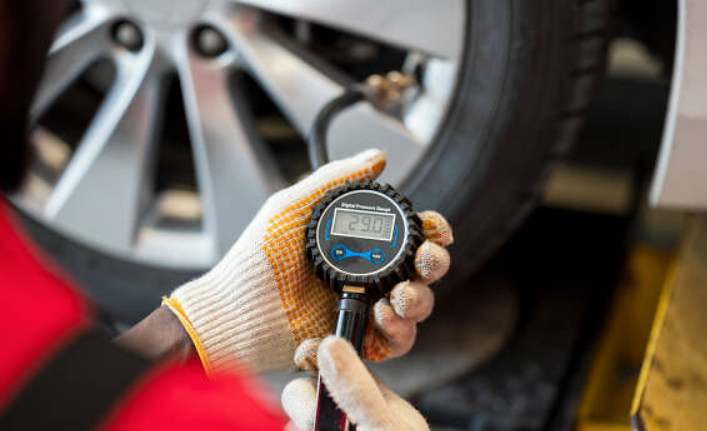(Akiit.com) Owning a car is one of life’s conveniences, but maintaining it? That’s where the real effort comes in. It’s easy to make small missteps that could lead to big expenses down the road. Let’s dive into seven common mistakes car owners often make and how you can avoid them.
1. Using Poor Quality Replacement Parts
When your car needs repairs, it might be tempting to save a few dollars with cheaper parts. But this shortcut often leads to costly long-term consequences. Poor-quality parts wear out faster, don’t perform as reliably, and can even cause damage to other components. Imagine replacing a faulty brake pad with a substandard one, only to find your rotors damaged a few months later. That’s a headache you don’t need!
When working on a vehicle like an MG, choosing MG car parts ensures the reliability and longevity of your car. Genuine parts are designed to fit perfectly, meet safety standards, and maintain the performance of your vehicle. Don’t skimp here—it’s better to invest in quality once than pay for repairs twice.
2. Ignoring Warning Lights
Those little icons on your dashboard aren’t just there for decoration. They’re designed to alert you when something’s off. Yet, many car owners tend to ignore them, thinking, “It’s probably nothing.” Unfortunately, that small oversight could lead to major engine trouble, transmission issues, or worse.
Pay attention when a light comes on. Is it your oil pressure? Your tyre pressure? Don’t guess—check your owner’s manual for guidance or head to a mechanic. Addressing issues early can save you from expensive repairs or breakdowns.
3. Neglecting Regular Maintenance
Skipping regular maintenance is a recipe for trouble. Your car relies on routine servicing to keep everything running smoothly. Oil changes, filter replacements, brake checks, and fluid top-ups are all vital for keeping your vehicle in top condition.
Think about it like this: Would you ignore your own health for years? Just like annual check-ups keep you feeling good, servicing your car ensures it performs well. Follow your manufacturer’s recommended schedule and don’t wait for something to go wrong.
4. Driving with Improper Tyre Pressure
Tyre pressure might seem like a minor detail, but it has a huge impact on your car’s performance and safety. Driving with underinflated tyres makes your car work harder, reducing fuel efficiency and causing uneven tread wear. Overinflated tyres, on the other hand, can lead to poor handling and increased risk of a blowout.
Check your tyre pressure regularly—at least once a month and before long trips. Most cars have a recommended pressure listed in the owner’s manual or on a sticker inside the driver’s door. Keeping your tyres properly inflated not only saves you money on fuel and replacements but also keeps you safer on the road.

5. Overloading Your Vehicle
It’s easy to underestimate the toll that extra weight can take on your car. Whether you’re packing up for a road trip or carrying heavy equipment, overloading your vehicle strains the suspension, brakes, and tyres. Over time, this can lead to wear and tear that’s completely avoidable.
If you regularly carry heavy loads, check your car’s maximum weight capacity in the manual. Spread out the weight evenly and avoid exceeding the limit. A lighter car is not only easier to handle but also more fuel-efficient.
6. Putting Off Minor Repairs
A small chip in the windscreen or a tiny dent in the bumper might seem harmless, but ignoring them can lead to bigger problems. That windscreen chip could turn into a crack, and that dent might rust over time. These small issues often snowball, costing you far more to fix later.
Get into the habit of addressing minor problems as soon as they arise. Fixing a chip is far cheaper than replacing a windscreen, and a little touch-up paint can prevent rust from spreading. It’s all about staying on top of maintenance before things escalate.
7. Using the Wrong Fluids
Your car’s fluids are its lifeblood, and using the wrong type can cause serious damage. For example, putting the wrong oil in your engine can reduce lubrication, leading to wear and overheating. Similarly, using an incorrect coolant can result in poor heat transfer and possible engine damage.
Always refer to your car’s manual to ensure you’re using the correct fluids, whether it’s engine oil, brake fluid, transmission fluid, or coolant. If you’re unsure, ask a professional. It’s a simple step that can save you from costly repairs.
How to Be a Smarter Car Owner
Owning a car doesn’t have to feel overwhelming, and avoiding these common mistakes is a great place to start. Take the time to familiarise yourself with your vehicle’s maintenance needs, stay proactive about addressing issues, and never hesitate to invest in quality parts.
Your car is one of your biggest investments, and with a little care, it’ll serve you well for years to come.
Staff Writer; Terry Harris









Leave a Reply